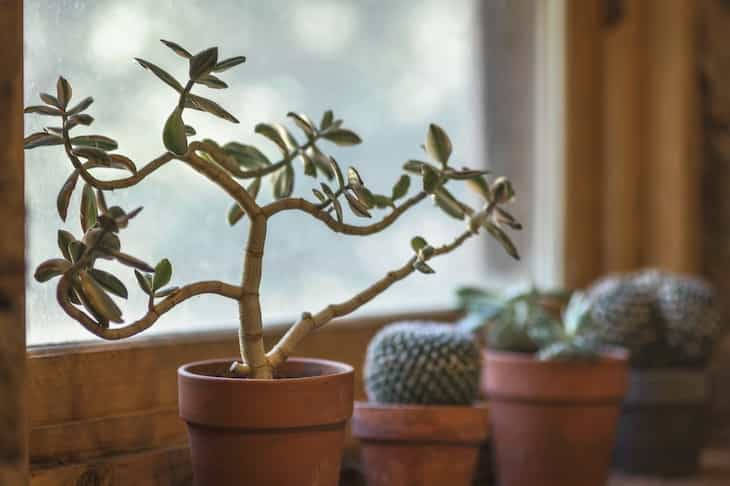If you love houseplants, then you don't have to just put them in line on your windowsill – it's boring!
Instead, you can create a nice composition on your windowsill and make it look even better.
Here are a few tips on how to arrange flowers, houseplants, and decorations, so they will look amazing.
Assess sunlight
Determine how much sunlight your windowsill receives.
Some plants need direct sunlight, while others prefer indirect or low-light conditions.

Choose plants that match the available light.
Select appropriate plants
Choose houseplants that thrive indoors and fit the lighting conditions.
Consider plants like succulents, ferns, or spider plants that are known to do well indoors.
Choose suitable containers
Select containers or pots that fit your windowsill space and have drainage holes at the bottom.
This allows excess water to escape and prevents root rot.
Use quality potting soil
Fill the containers with well-draining potting soil.
Avoid using garden soil, as it may be too heavy and can lead to waterlogging.
Provide humidity if necessary
Some houseplants benefit from increased humidity.
You can mist the leaves with water or place a tray of water near the plants to increase moisture in the air.
Rotate the plants
To ensure even growth, rotate the plants occasionally so that all sides receive adequate sunlight.
Prune and maintain
Trim any dead leaves or stems to keep the plants looking tidy.
Dust the leaves occasionally to allow them to breathe and absorb more sunlight.
Monitor for pests
Keep an eye out for pests like aphids or spider mites.
If you notice any infestations, take appropriate measures, such as using insecticidal soap or natural remedies, to protect your plants.
Previously, we talked about gaming consoles in living rooms.












